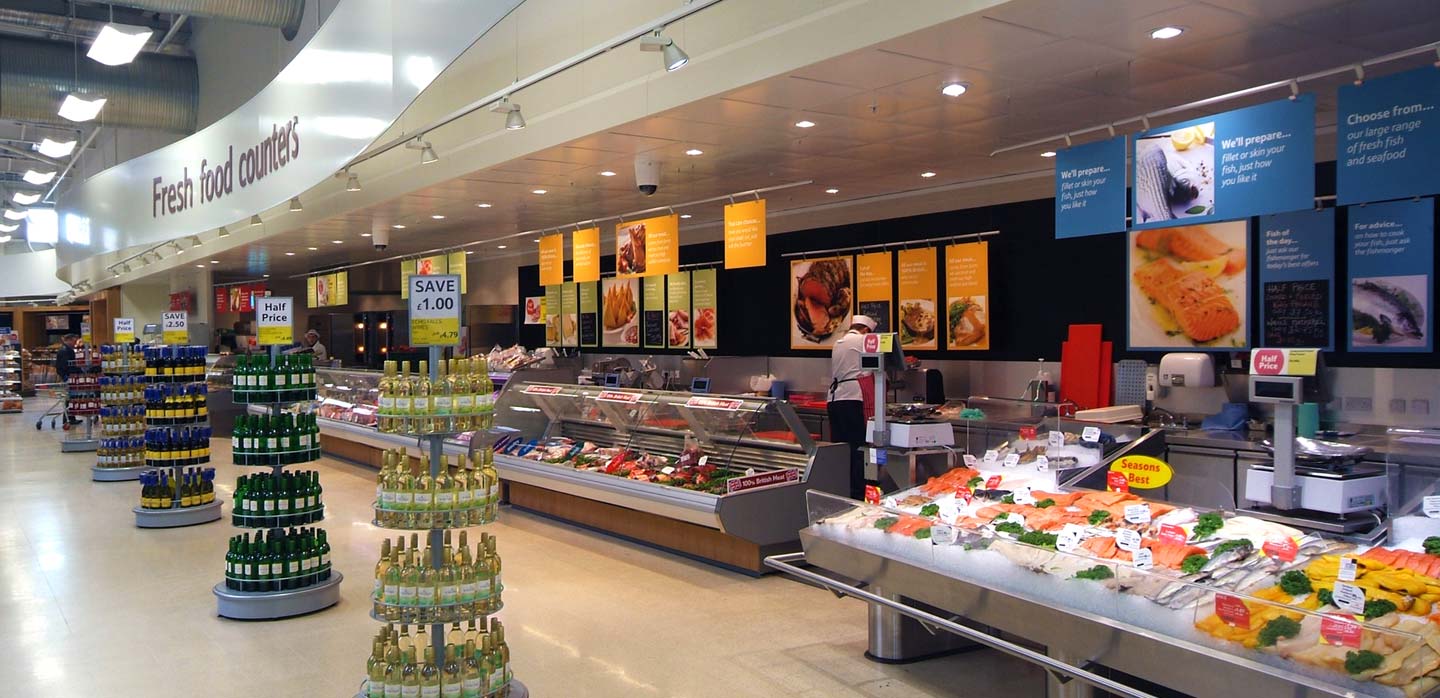 Introduction to Food Distribution in Saudi Arabia
Introduction to Food Distribution in Saudi Arabia
Trends and Insights
The food distribution landscape in Saudi Arabia is currently experiencing a vibrant shift, driven by evolving consumer preferences and emerging trends . As people's lifestyles change, there is an increased demand for convenience and quality, which has led to a surge in food delivery companies in Saudi Arabia. Key trends shaping the market include:
- Rise of Online Shopping : Consumers are embracing digital platforms for their grocery needs, favoring the convenience of ordering from their homes.
- Health-Conscious Choices : An increasing awareness of wellness is prompting consumers to seek out healthier, organic options. This has encouraged food distribution companies to adapt their product offerings accordingly.
- Regional Specialties : The uniqueness of Saudi cuisine is gaining traction, with distributors focusing on local and traditional products that resonate with consumers.
Transforming the Market
The transformation of the food distribution market in Saudi Arabia is profound, thanks to various innovative strategies employed by leading distribution companies. For instance, companies like Abbar Foods have integrated technology into their operations to streamline logistics and ensure the swift delivery of fresh produce. Examples of market transformation include:
- Smart Logistics Solutions : Implementing AI and data analytics to predict demand and optimize delivery routes.
- Collaboration with Local Farmers : Establishing partnerships to enhance product freshness and support local economies.
- Focus on Sustainability : Many companies are adopting eco-friendly practices, such as reducing packaging waste and utilizing energy-efficient transportation methods.
In the ever-evolving food distribution market, staying tuned to these trends not only helps businesses remain competitive but also fosters a culture of innovation that benefits consumers and the broader community.
Adapting to Consumer Preferences
 Source: www.peppyocean.com
Source: www.peppyocean.com
Changing Consumer Landscape
As the food distribution market in Saudi Arabia continues to evolve, the consumer landscape is undergoing significant changes that demand a quick response from food distribution companies. Modern consumers are more informed and discerning than ever before, and their preferences are heavily influenced by lifestyle choices and cultural shifts. Some key driving factors this change include:
- Health and Wellness : There's a pronounced shift towards healthier eating, with consumers increasingly seeking organic and natural products.
- Convenience : Busy lifestyles mean that consumers value time-savers, whether it's ready-to-eat meals or quick delivery options from food delivery companies in Saudi Arabia.
- Diverse Preferences : The rise of multiculturalism in urban centers is leading to a greater demand for diverse culinary options, reflecting the tastes and desires of various ethnic communities.
These trends highlight that food distribution companies must remain agile to meet these ever-changing preferences.
Role of Technology
Technology plays a pivotal role in adapting to the shifting consumer landscape. The integration of advanced solutions enables food distributors to not only keep pace with demand but also anticipate future trends. Examples of technology's role include:
- Mobile Applications : Many food delivery companies in Saudi Arabia have developed user-friendly apps that allow consumers to effortlessly browse options, place orders, and track deliveries.
- Data Analytics : Companies are leveraging data to analyze purchasing habits, helping them curate specific products that align with consumer preferences.
- Automation in Warehousing : Innovations such as automated sorting systems improve efficiency and reduce lead times, ensuring fresher products on shelves.
By embracing technological advancements, food distribution companies can not only cater to the current consumer preferences but also position themselves as leaders in this competitive market.
Sustainable Practices in Food Distribution
Eco-Friendly Approaches
With increasing awareness of environmental issues, food distribution companies in Saudi Arabia are prioritizing sustainable practices more than ever. This shift isn't just a trend; It's becoming a fundamental aspect of how these companies operate. As a consumer, it feels good to support businesses that align with values of sustainability and environmental responsibility. Some eco-friendly approaches being adopted include:
- Sustainable Packaging : Many companies are switching to bioplastics, recyclable materials, or minimal packaging to reduce waste.
- Energy-Efficient Logistics : Utilizing electric vehicles or optimizing delivery routes helps slash carbon emissions associated with transportation.
- Food Waste Reduction : Initiatives like donating unsold products to local charities or composting organic waste are on the rise, helping to minimize waste in the distribution chain.
These efforts are not only beneficial for the planet but also resonate positively with consumers who prefer brands that take sustainability seriously.
Leading the Way in Sustainability
Several food distribution companies in Saudi Arabia are leading the charge in integrating sustainable practices into their operations. For example, Basateen Foods has made significant strides by partnering with local farmers to source ingredients responsibly, ensuring the freshness of products while supporting the local economy. Key initiatives include:
- Green Certifications : Companies are seeking certifications that recognize their efforts, signaling their commitment to sustainability to consumers.
- Continuous Improvement : Regular audits and assessments of their practices allow companies to adapt and enhance their sustainability efforts, ensuring they stay ahead of the curve.
By championing sustainable practices, these forward-thinking companies are not only meeting the demands of today's mindful consumers but also paving the way for a greener future in the food distribution sector.
Responding to Supply Chain Disruptions
Navigating Challenges
In the ever-evolving landscape of food distribution in Saudi Arabia, supply chain disruptions have emerged as a crucial challenge that businesses must adeptly navigate. Recent global events have highlighted vulnerabilities in the supply chain, making it imperative for companies to develop strategies that ensure resilience. Common challenges faced include:
- Logistics Delays : Increased shipping times and logistical hurdles can lead to shortages of popular food items.
- Raw Material Shortages : Fluctuations in availability due to factors like global commodity price changes can disrupt sourcing strategies.
- Regulatory Hurdles : Compliance with evolving food safety regulations can create unforeseen challenges in the distribution process.
Companies that successfully adapt to these challenges demonstrate not only agility but also commitment to customer satisfaction.
Adapting to Growing Demand
As consumer preferences shift, driven by a desire for convenience and quality, food distribution companies must also respond to the heightened demand for diverse and fresh products. This adaptability is crucial for thriving in a competitive market. Strategies for adapting include:
- Diversifying Suppliers : Many businesses are broadening their supplier base to reduce dependence on single sources, thereby minimizing risks of disruptions.
- Enhancing Inventory Management : Implementing advanced inventory systems helps distributors anticipate demand trends, allowing for proactive inventory management.
- Flexible Delivery Options : Offering various delivery formats, such as express and same-day delivery, caters to the growing desire for quick access to food products.
By embracing these strategies, food distribution companies in Saudi Arabia can effectively respond to supply chain disruptions while simultaneously meeting the growing demands of their consumers. This dual focus ensures they remain resilient and competitive in an ever-changing environment.
Local Brands and Producers
 Source: campbellrigg.com
Source: campbellrigg.com
Rising Popularity
In recent years, the food distribution landscape in Saudi Arabia has witnessed a remarkable rise in the popularity of local brands and producers. Consumers are increasingly drawn to regional products, desiring not only quality but also the unique flavors and cultural touchstones these brands represent. Factors contributing to their rising popularity include:
- Support for Local Economies : Many consumers are motivated by a desire to support local businesses, fostering a sense of community and sustainability.
- Authenticity : Local producers often offer products that reflect traditional cooking methods and flavors, allowing consumers to enjoy authentic Saudi cuisine.
- Health and Freshness : A preference for farm-to-table options drives demand for local produce that is often fresher than mass-produced alternatives.
For many, the decision to choose local brands over international giants is not merely about taste; It's a way to connect with their heritage and community.
Collaborations for Progress
The collaboration between local brands and established food distribution companies is paving the way for innovation and growth in the industry. These partnerships not only enhance product availability but also enrich the overall culinary scene in Saudi Arabia. Key examples of collaborations include:
- Joint Marketing Efforts : Local producers team up with distribution companies to amplify their reach and visibility, making it easier for consumers to discover their products.
- Co-creation of New Products : Collaborations often lead to the development of unique offerings that blend traditional flavors with modern trends, appealing to a broader audience.
- Shared Resources : By pooling resources, local brands can access better logistics and supply chain solutions, ensuring their products stay fresh and reach consumers efficiently.
These collaborations not only bolster local economies but also enrich consumers' choices, ultimately advancing the food distribution landscape in Saudi Arabia. The synergy between local brands and distributors is a testament to the strength of the community and innovation working hand in hand.
Future Growth Opportunities
Market Dynamics
As the food distribution market in Saudi Arabia continues to evolve, several compelling growth opportunities are emerging. The dynamic nature of consumer preferences, coupled with technological advancements, is reshaping how products are distributed and consumed. This lively landscape presents new avenues for companies willing to innovate and adapt. Current market dynamics include:
- Increased Demand for Home Delivery : The pandemic sparked a monumental shift towards online grocery shopping and food delivery services, a trend that shows no signs of slowing.
- Health and Wellness Trends : Consumers are prioritizing health, leading to increased demand for organic, gluten-free, and plant-based products. Companies that align their offerings with these preferences stand to benefit significantly.
- Investment in Local Products : As mentioned previously, local brands are gaining traction. Distributors can capitalize on this by expanding their partnerships with regional producers.
These factors indicate that the market is ripe for businesses that can harness these trends effectively.
Culinary Landscape Development
The future of food distribution in Saudi Arabia is also closely tied to the development of the culinary landscape. As globalization continues to influence local dining, the fusion of traditional and contemporary cuisines presents a unique opportunity for growth. Opportunities in culinary development include:
- Promotion of Culinary Tourism : By highlighting local dishes and culinary traditions, food distributors can attract both locals and tourists interested in authentic Saudi experiences.
- Collaboration with Chefs and Influencers : Engaging local chefs and food influencers can help generate buzz around new products and create demand in unique ways.
- Workshops and Events : Hosting cooking workshops or food festivals can foster community engagement and promote local products, creating a supportive network for growth.
By embracing these strategies, food distribution companies can not only enhance their market presence but also contribute to a thriving culinary scene that captures the essence of Saudi food culture while looking to the future.
Regulations and Impact on Companies
Analyzing Regulatory Landscape
In the food distribution industry, particularly in Saudi Arabia, understanding the regulatory landscape is crucial for companies aiming to thrive. The evolving regulations ensure food safety, quality, and fair trading practices, but they also pose challenges for businesses striving to adapt and comply. Key components of the regulatory landscape include:
- Food Safety Standards : Policies set by the Saudi Food and Drug Authority (SFDA) mandate strict adherence to food safety protocols, requiring rigorous inspections and certifications.
- Labeling Requirements : Accurate labeling is essential, as consumers increasingly seek transparency regarding ingredients and nutritional information.
- Import Regulations : For companies that source products internationally, navigating import regulations and tariffs can be complex and requires careful attention.
Innovative businesses are analyzing these regulations not just as hurdles but as opportunities to prove their commitment to excellence.
Compliance and Innovation
Compliance with regulations doesn't have to be a burden; it can also foster innovation and operational efficiency. Companies are finding ways to streamline their practices to meet regulatory demands while enhancing the quality of their services. Examples of how compliance drives innovation include:
- Tech Adoption : Many food distribution companies are investing in technology solutions such as supply chain management systems and tracking software to ensure compliance with safety standards.
- Sustainability Practices : With increasing regulatory focus on sustainability, companies are innovating to reduce waste, such as adopting eco-friendly packaging and working towards carbon neutrality.
- Training Programs : Implementing comprehensive training for employees on compliance protocols leads to greater awareness and responsibility, ultimately enhancing overall service quality.
By embracing compliance as a catalyst for innovation, food distribution companies in Saudi Arabia can not only meet regulatory standards but can also position themselves as leaders in quality and sustainability. This proactive approach enables them to build a solid foundation for long-term growth and customer trust in a competitive market.
Logistics Innovation in Distribution
Inside the Network
In the fast-paced world of food distribution in Saudi Arabia, logistics innovation plays a vital role in streamlining operations and enhancing efficiency. As consumer demands continue to evolve, companies are increasingly recognizing the importance of a well-structured logistics network that supports their distribution efforts. Key elements of a successful logistics network include:
- Real-time Tracking : Implementing GPS and tracking technologies allows companies to monitor shipments in real-time, ensuring transparency and accountability throughout the distribution process.
- Centralized Warehousing : Establishing strategically located warehouses can reduce transit times and facilitate quicker deliveries to urban centers where demand is highest.
- Integrated Supply Chain Systems : Utilizing advanced software that connects all aspects of the supply chain, from suppliers to retailers, enhances communication and coordination.
By building a robust logistics network, companies can provide a seamless experience for their customers, setting themselves apart in a competitive market.
Enhancing Operations
With a solid logistics network in place, the next step involves enhancing operational processes to further support growth. Embracing innovative practices not only leads to cost savings but also improves service delivery. Some innovative operational enhancements include:
- Automation and Robotics : Many companies are adopting automation in their warehouses to streamline sorting and packing, significantly reducing labor costs and increasing speed.
- Data Analytics : Leveraging data analytics for demand forecasting helps companies better manage inventory, ensuring that they're stocked with the right products at the right time.
- Sustainability in Logistics : More companies are focusing on eco-friendly logistics solutions, such as optimizing delivery routes to minimize fuel consumption or investing in electric vehicles.
Incorporating these innovations into logistics operations allows food distribution companies to thrive in Saudi Arabia's competitive landscape. Delivering high-quality products efficiently not only boosts customer satisfaction but also establishes long-term loyalty, ensuring sustained success in the marketplace.
Food Safety and Quality Standards
 Source: ssa.foodsecurityportal.org
Source: ssa.foodsecurityportal.org
Regulatory Compliance
In the world of food distribution, particularly in Saudi Arabia, food safety and quality standards are not just buzzwords; They are fundamental to ensuring consumer health and maintaining business integrity. Compliance with regulations set by the Saudi Food and Drug Authority (SFDA) is crucial for any company operating in this space. These regulations are designed to minimize risks and ensure that only the highest quality products reach the consumer. Key aspects of regulatory compliance include:
- Hygiene Practices : Companies must adhere to strict sanitation protocols in warehouses and transportation to prevent contamination.
- Labeling Laws : Accurate labeling that includes nutritional information and ingredient lists is mandated, helping consumers make informed choices.
- Regular Inspections : Routine audits and inspections by regulatory bodies to ensure that companies are following guidelines, reinforcing a culture of accountability.
As someone who enjoys shopping for groceries, there's a comforting feeling that comes with knowing food distributors adhere to these regulations.
Quality Assurance Practices
Beyond regulatory compliance, implementing robust quality assurance practices is essential for any food distribution company aiming to exceed consumer expectations. A commitment to quality reinforces trust and builds brand loyalty among consumers. Effective quality assurance practices include:
- Supplier Audits : Regularly auditing suppliers ensures that the ingredients sourced meet safety and quality standards.
- Batch Testing : Conducting tests on different batches of food products helps verify that they are free from contaminants and meet specified quality metrics.
- Employee Training : Continuous education on safety protocols and quality control measures empowers employees to uphold the highest standards.
By embracing these quality assurance practices, food distribution companies not only comply with regulations but also create an environment of excellence. Ultimately, this focus on food safety and quality ensures that consumers receive fresh, safe, and nutritious food products, fostering a deep sense of trust in the brands they choose.
In Saudi Arabia, food distribution companies play a crucial role in ensuring a steady supply of food across the country. Here are some of the notable food distribution companies in the Kingdom:
- Almunajem Foods : One of the largest food importers and distributors in Saudi Arabia, Almunajem Foods specializes in supplying frozen, chilled, and dry food products across various sectors, including supermarkets, restaurants, and catering.
- Saudia Dairy and Foodstuff Company (SADAFCO) : Known for producing and distributing dairy products, SADAFCO has a vast distribution network for items like milk, cheese, and ice cream.
- Almarai : Almarai is a major player in dairy, bakery, poultry, and juice products, with an extensive distribution network that covers the entire Gulf region.
- Al Othman Group : This group distributes a wide variety of food products, including frozen foods, fruits, vegetables, and meat products, serving both retail and hospitality sectors.
- Basamh Trading Co. : Specializing in importing and distributing high-quality food brands, Basamh distributes a wide range of products, from dairy to canned goods, throughout Saudi Arabia.
- IFFCO : A multinational group with a significant presence in Saudi Arabia, IFFCO distributes edible oils, frozen foods, and bakery products to both retail and food service sectors.
- Savola Group : Known for its distribution of edible oils and sugar, Savola Group is one of the top food manufacturers and distributors in the Middle East.
These companies ensure that a wide variety of food products are readily available to consumers, helping maintain food security and quality standards in Saudi Arabia.
Confectionery and biscuit products
Personal care and cleaning products
Personal care and cleaning products

